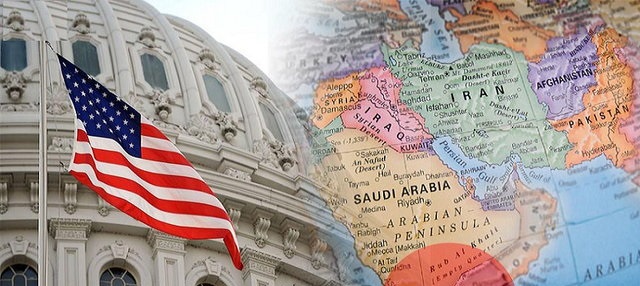By Sajad Abedi
"Geopolitical recognition is part of an old technique that emphasizes geography as the main determinant of the behavior of a state is stressed." (Graham Fuller).From a traditional point of view, the location of a country, its neighbors, communication axes, and physical resources are considered as irreplaceable and fundamental factors that limit the actions of a state.
Iraqís occupation of Kuwait has urgently raised the issue of long-term regional arrangements. Although the United States has been eager and able to carry out this role in the right conditions, it is not a neutral force in the region; On the contrary, the United States has been under the influence of several decades of Cold War intervention and is often worn in the dark stratum of "imperialism," and is considered to be Israelís main ally and supporter.Therefore, the United States is not a proper country in the long run to steer the ongoing security intervention process. Even countries that want to be under protective umbrella of the United States are paying the price at the expense of losing their legitimacy and autonomy in the region.A new post-Cold War era, in which we have an effective United Nations for the first time, opens up new opportunities for multilateral and regional security arrangements that carry less positive and negative symbols than the United States.In the Persian Gulf, there should be new arrangements that go beyond the temporary grouping of countries to deal with a certain security threat, and designed to deal with regional invasions more systematically and include all Gulf States. If these arrangements end the unilateral intervention of the United States, It is likely to be Iranís keen interest, and Iran could possibly lead the GCCís enlargement or replacement.Any regional security organization that includes Iran, Iraq, or Saudi Arabia faces the problem of "To Shepherd the Wolf to Protect the Flock »". These three countries are potentially creating the same problem as the solution.However, regional security is unthinkable under any circumstances that they are being abandoned.Therefore, a regional security organization should be associated with or alongside a larger organization within the UN Security Council, By reinforcing regional forces, it prevents larger members from turning over this regional organization .Other countries that can increase this organization and provide more regional balance are Pakistan and Turkey.At the moment, such an organization is not on the horizon, but its logic is convincing.
This theoretical scenario shows some practical factors in determining the national interests of Iran.At the heart of these theorists There is a basic assumption in the focus of these theories: that Iran is basically the superior power of the Persian Gulf.The defeat of Iraq in the Persian Gulf War has only accelerated Iranís return to the position of supreme power.The main desire of Iran is to maintain unrivaled power in the region.In this way, Iranís behavior will be very similar to India, Indonesia, or other major regional powers;It opposes any foreign power that tries to undermine the exercise of local power, whether that power follows revolutionary policies or moderates, and at any time in time. The enthusiasm that Iran shows in its expansion of power in the Persian Gulf is to some extent rooted in the failure of Iran to exercise control over its natural history, myth and ambition.No other country in the Persian Gulf can make a similar claim in terms of the continuation of its historical interests. Preventing these ambitions from being made by Britain, and later the United States, only helps to exacerbate this frustration.Even today, there is no navy power in the Persian Gulf that can withstand the navy powers of Iran.Saudi Arabia also lacks a tradition of exercising power on the sea, and Experiences and limited human resources will limit the role of the country in the future mainly to the realm of defense.
................................
Sajad Abedi, Visiting Professor Université Saint-Joseph de Beyrouth
LINK: https://www.ansarpress.com/english/8426
TAGS:































 Violation of the sovereignty and rights of afghan citizens by America
Violation of the sovereignty and rights of afghan citizens by America




